The dreaded CAF and other forms of help
Following on from the previous entry, Erasmus paperwork and mental messiness, in this entry I’ll pick up where I left off and explain what CAF consists of.
CAF in French means, Caisse d'allocations familiales, and it’s a financial aid from the French government to French residents to help with the cost of living.
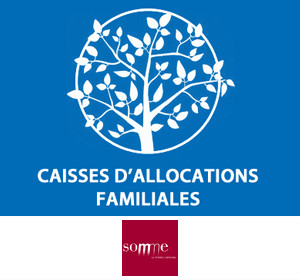
Theoretically, the government gives this financial aid to whoever asks for it, but until the moment arrives when they accept your request and send you the money, you have to go through a real nightmare.
If the Erasmus application was enough trouble, compared to a CAF application, the equivalence agreement is child’s play.
Due to the amount of paperwork and the delay in dealing with applications, people usually end up throwing in the towel and forgetting about it.
But this is the biggest mistake to make. You must continue to insist because in the end they’ll give you the money for certain.
Depending on your monthly income, the aid that you receive will be more or less, but they’ll always give you something.
Normally, when Erasmus students arrive in France, the coordinators there advise them to start the CAF application as soon as possible in order to make it easier to pay for accommodation.
The documents to deliver to the CAF office are:
- A copy of your ID card or passport.
- A copy of your birth certificate (in French).
- A copy of your EHIC card or medical insurance.
- A letter written by the student stating that they have sufficient resources to be able to live in France.
- A copy of the Erasmus grant agreement.
- A copy of your housing contract for wherever you are staying.
- A copy of your RIB from your French bank.
Then, the first thing you must do once you’ve arrived in France is ask for an attestation from your residence to prove that you’re living there or that you’ve been accepted, as well as an invoice of the monthly rent price; both of which must be signed by the manager of the residence that you’re in.
Both the invoice and the attestation are easy to obtain because it’s enough to go to the reception and tell them that you’re going to apply for CAF and they will give you what you need to draw up the application.
Regarding the copy of the birth certificate, as I said before, it needs to be in French. Not in Spanish nor English nor any other language.
So demanding are the French, that on the bottom of the birth certificate they only put the date, time and place of birth and the names of the parents and nothing more, for which the language doesn’t matter because it’s perfectly understandable.
But in the end, that’s what these frogs are like, so you need to get an official translation of the document before a notary, which is the same when you deliver a copy of the private medical insurance.
In my case, since I already knew the CAF and I knew which documents needed to be delivered, before going to France I translated my birth certificate before a notary. And of course it cost me nothing (family contacts, sorry not sorry), but I think it is quite expensive, although it depends on how many pages need to be translated; but I know that in France they can earn a lot per page.
Unfortunately, I can’t give you prices for translations because I have no idea and I haven’t bothered to ask other classmates, so I would advise you to look at several translators to compare prices so they don’t sting you, and perhaps you’ll be lucky and find someone who will do it for free.
The letter in which you must state that you have enough resources to live in France must be, obviously, in French.
But in this case, it doesn’t have to be an official translation. It’s just based on a piece of writing where you put exactly what they tell you to, but there’s more chance of them getting your application earlier if you send with this letter a letter signed by your bank where they also confirm that you have the funds to live in France.
In the CAF application, in the "Étudiant boursier" box, you need to tick Non, because despite having the Erasmus grant, you don’t have a grant from the French government.
Another important thing, as well as the official translations, is to have a French bank account. It’s basically compulsory if yu want to benefit from the CAF, as without it they won’t give you a penny.
There are lots of banks in Amiens, but the most well-known and most recommended one is LCL.
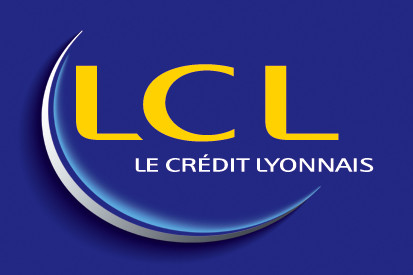
https://en.wikipedia.org/wiki/File:Le_Cr%C3%A9dit_Lyonnais_(logo).png
With LCL, you can open a student bank account in which they don’t charge you for having a credit or debit card, nor for having the account, and it’s also an insurance company, given that insuring the room is another requisite for staying in a residence, which costs 5 euros per month (if you take it out with LCL, I’m not sure how much for other insurance companies).
There’s an enormous branch (I think it’s the main one) on the avenue Trois Cailloux (it used to be an old theatre).

https://fr.wikipedia.org/wiki/Fichier:Amiens
This is where my Erasmus Friends and I opened the account, mostly because it’s very quick and easy.
The bank’s opening times are very different to those in Spain, which usually don’t do things like opening bank accounts after 2 o’clock in the afternoon or at the weekends.
From Tuesday to Friday from 10 until 1, and from 2 until 6. 30, except Tuesdays when they reopen at 3 until 6. 30.
On Saturdays it’s 9. 30 until 1, and 2 until 4.
At the time when I did my Erasmus in Amiens, I found two LCL branches in the centre (maybe there are more), one is in Trois Cailloux, as I mentioned before, and the other is in the Centro Hall, where there’s a big Carrefour, in front of the bus stops.
To be honest I wouldn’t recommend opening an account in this branch because the bankers are a little snooty, however those in the Trois Cailloux branch are all younger and more empathetic towards students.
Going back to the CAF, it’s important that you start the application as soon as you arrive because if not you’ll have problems when it comes to processing the documents.
Some students who will be living in CROUS residences will have the help payment assured.
You can deliver the documents by internet or in a CAF office, therefore delivering them personally.
In the case of doing it personally, normally you’ll need to ask for an appointment in advance, if not they’ll deal with you last.
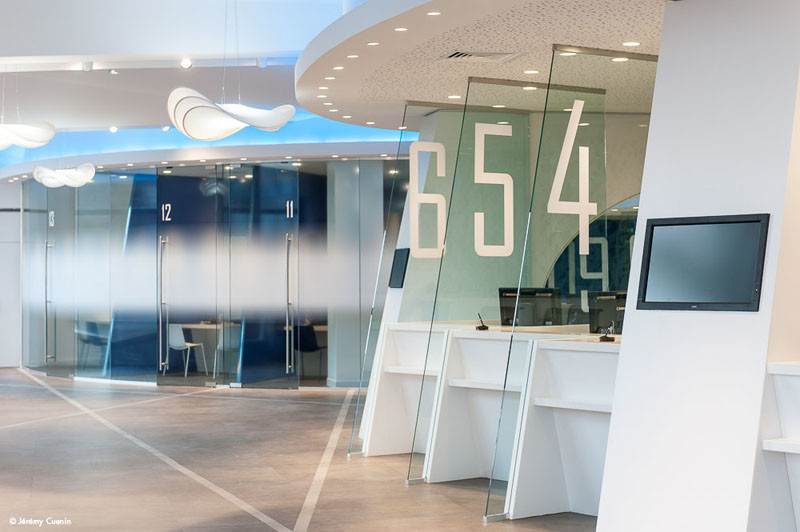
http://www.majorelle.fr/
Now, once all of the documents and application are gathered and delivered, the problems begin.
They’ll send you letters telling you that you haven’t sent some documents or that they aren’t good enough or correct.
All of this is a huge lie. Truthfully I think they do it just to mess about, clearly, and above all with Erasmus students.
What happened to me was that for 2 months all they did was ask me for my European health card, because according to them I hadn’t sent it.
This didn’t make sense because I had made sure that I had all of the necessary documents and also, each time they sent me a letter saying that my European health card was missing, I went directly to the office and put in a letter with a copy of the card in the box that was in the entrance.
After sending almost 10 copies, I went to the office to speak personally with someone who works there to physically show them the card and received an explanation that, no matter how false it was, I swallowed because they were being so nice to me that I couldn’t cause a scene.
They told me that it was because each time i send the copy of the card they were putting it in another folder that wasn’t mine.
Excusez-moi?!
I had uploaded it to my profile, so it was almost impossible to put the card into another file..
After lots of complaining and arguing (because I was going crazy with the robot that had got me), finally my application was up to date.
And until almost halfway through my Erasmus, in the middle of February, I didn’t receive anything. It was almost poverty.
In total they gave me 190 euros, 38 euros for 5 months.
When I received the money I never managed to understand why they had only given me 5 months’ worth when I had made it very clear in the application that I would be living in France for 9 months.
When I thought about complaining, I spoke with other girls that lived in the same residence as me and who were also Erasmus students for 9 months, and they told me that they too had received the same amount of money as me.
They explained to me that it was because the Erasmus grant only covered 5 months of our stay and that’s why the CAF gave us 5 months’ worth of help. It didn’t make sense, because CAF has nothing to do with the Erasmus grant.
In the end, the money that they gave me was useful for paying the final months’ rent, which costs 186 euros.
There’s little more to say about CAF except that it’s a real hassle but if you’re persistent and you don’t throw in the towel they’ll end up helping you out, although some people skip the subject because for the small amount that you receive, they prefer to invest their time into more productive things.
Another interesting aid for living cost is the one from CROUS.
The acronym CROUS in French means Centre Régional des Oeuvres Universitaires et Scolaires.
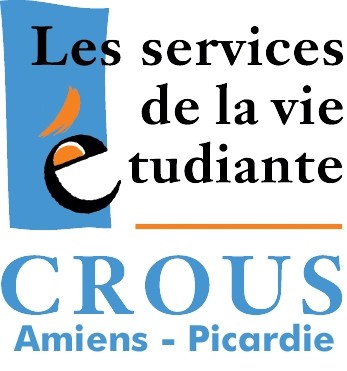
https://www.location-etudiant.fr/crous-Amiens-80021.php
The residences that make up CROUS are public and generally cheap compared to private options.
These residences are very much in demand by French students, but in some of them, people who aren’t students but who don’t have many economic resources to apply for a room in a shared house or an entire apartment can apply.
As well as the residence that CROUS offer, they also have several university restaurants next to the faculties where you can eat quite well for around 3. 50€ for a set menu.
Going back to the residences, a lot of the time they tend to turn away exchange students because I suppose they want to give priority to French students, and unfortunately, when they reject an application, they don’t explain why and they usually give an easy excuse or they simply don’t respond to the complaints of rejected students.
When this happens, you need to bombard the CROUS with emails and phone calls demanding an explanation or an alternative, an in the end they will surely acknowledge you or help you, because French people always hide helpful information from foreigners.
In my case I was very lucky and they gave me a room with no problem. But also I think this is because Amiens isn’t a very big city and, despite being a university city, there are quite a lot of residences and even shared flats for reasonable prices.
And now let’s move on to the aids from CROUS.
In the case of not having a very high income and the Erasmus grant not helping you to cover come of your basic costs, you can arrange a meeting with a member of the CROUS to ask for help.
In Amiens, luckily for me, the office is situated just underneath the girls’ residence in Saint-Leu where I was living.
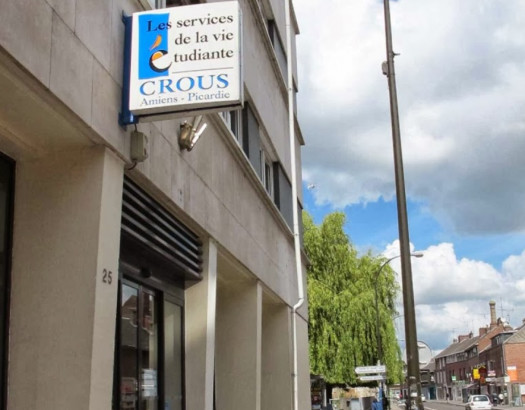
https://www.location-etudiant.fr/detail-crous-nouvelle-st-firmin-amiens-741.html
Normally it’s enough to go to the office and to tell them that you need to speak to the person in charge of grants and that’s it. When you’re with the person in charge, you can explain your situation.
I have a friend who was in the same residence as me who went to speak with the CROUS and they gave her a cheque for 250 euros upon leaving.
I was going crazy and preparing myself to go and see this man.
What made me decide to go wasn’t the fact that they had given my friend money and that I wanted them to give it to me too (well, basically yes, but with good reason), but it was because I was genuinely starting to have financial problems and I was struggling to reach the end of the month.
When I went I told him about my situation, and he told me that unfortunately all of the monetary funds had been used up and that they wouldn’t have more funding until summer; but that they could load my student card in order to be able to eat in the CROUS university restaurant for free once a day for 2 months.
Truthfully, this was better than nothing, and in general I really liked the food that they provided in the university restaurant, so I began.
Then I had another friend who received absolutely nothing even though she had no father and her mother was unemployed.
So I suppose it all comes down to being lucky or not.
So lastly, another student aid, despite not being financial, is one that the UPJV gives on campus (on the outskirts of the city).
I think I’ve mentioned it in a previous blog entry, and it’s that the university, if you go to the campus, can give you things for the kitchen, like glasses, cutlery, plates, pans, frying pans etc; so that you don’t need to buy them and then leave them because you can’t take them home.
These things that they provide are from students from previous years who donated them to the university so that they can give them to new students in the following years so that they don’t have to waste money buying these things.
The only requirement for receiving these items is to go and get them.
And in order to get them, you need to ask, otherwise they forget.
The person who gave us our items was the lovely Melanie who I have spoken about previously.
Nobody knew about these donations, but an Erasmus friend found out about it through another Erasmus student and we went to the international relations office to see if such a thing existed.
There’s nothing more to say about the donations, we went to the room where the things were, and being the first to arrive, we took almost everything, oops…
But above all because we shared them between the three of us (since we lived in the same residence) and because we also organised family dinners and we needed lots of things so that everyone had a plate to eat from.
So overall, I think this is all of the advice that there is, or at least that I asked for.
If I find out about anything else, I’ll add it to this entry, and if not, once you arrive in Amiens or in any other Erasmus destination, don’t be shy and always ask if there is help for Erasmus students, because there always is ;)
Photo gallery
Content available in other languages
- Español: La temida CAF y otras ayudas
- Français: La redoutable CAF et d'autres aides
- Italiano: La temuta CAF ed altri aiuti
Want to have your own Erasmus blog?
If you are experiencing living abroad, you're an avid traveller or want to promote the city where you live... create your own blog and share your adventures!
I want to create my Erasmus blog! →









Comments (0 comments)